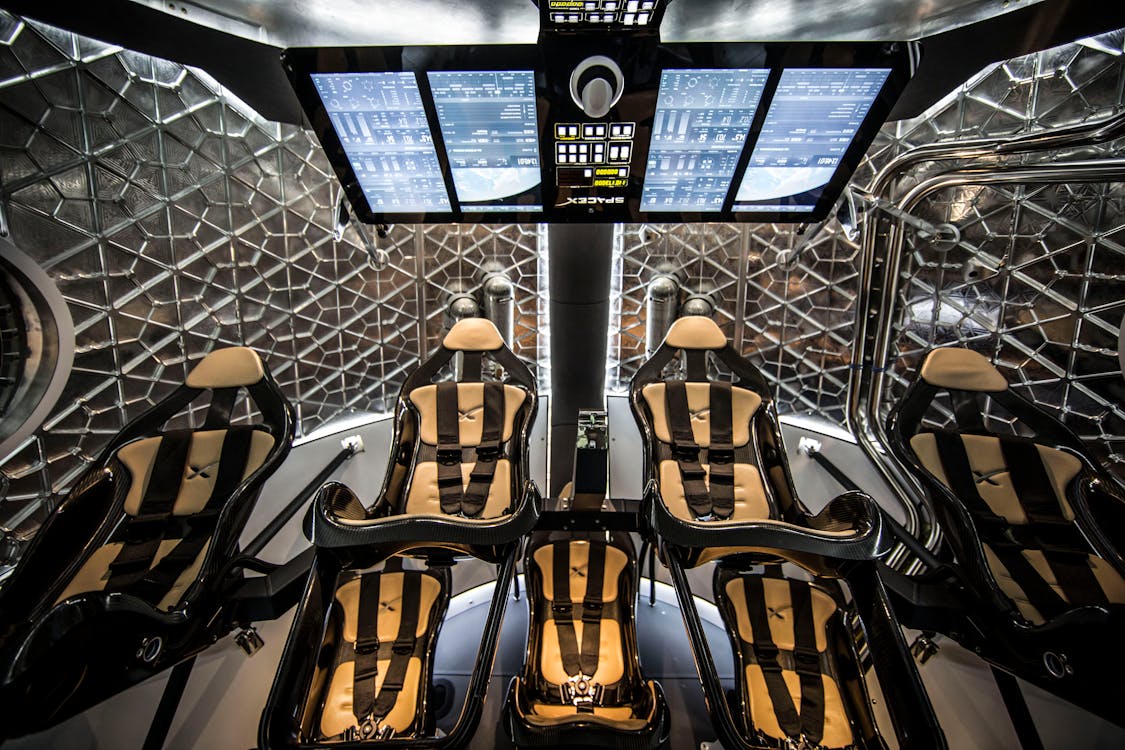International Space Station Welcomes Diverse Crew for Groundbreaking Scientific Mission
In a historic endeavor pushing the boundaries of scientific exploration, the International Space Station (ISS) has embarked on a momentous mission with a crew as diverse as the stars they study. This groundbreaking expedition, hailed as a triumph of international collaboration, marks a new chapter in humanity's quest for knowledge beyond the confines of Earth.
The crew, comprising astronauts from various nations spanning the globe, represents a tapestry of cultures, backgrounds, and expertise. Among them are veteran spacefarers, seasoned scientists, and promising newcomers, each bringing a unique perspective and skill set to the mission. United by their shared passion for discovery, they epitomize the spirit of cooperation and camaraderie that defines space exploration.
Commander Elena Rodriguez, a seasoned astronaut from NASA, leads the expedition with unwavering determination and a steadfast commitment to the mission's success. Her leadership, honed through years of rigorous training and space missions, inspires confidence and unity among the crew members. With her at the helm, the crew embarks on their journey into the cosmos, ready to confront the challenges and wonders that lie ahead.
Joining Commander Rodriguez are Dr. Mei Ling, a brilliant astrophysicist from China, and Dr. Ahmed Khan, a pioneering biologist from Pakistan. Their expertise in their respective fields promises to unlock new frontiers of scientific understanding, from unraveling the mysteries of distant galaxies to studying the effects of microgravity on biological systems. Their collaboration exemplifies the power of science to transcend borders and foster collaboration on a global scale.
Rounding out the crew are Lieutenant Yuri Petrov, a seasoned cosmonaut from Russia, and Lieutenant Sophie Leclerc, a talented engineer from France. With their technical prowess and unwavering dedication, they ensure the smooth operation of the ISS and its sophisticated instrumentation, essential for conducting cutting-edge research in the harsh environment of space. Together, they form a cohesive team, ready to tackle the challenges of life aboard the orbiting laboratory.
The mission objectives are as ambitious as they are diverse, reflecting the multifaceted nature of space exploration. One key focus is the study of cosmic radiation and its impact on human health, crucial for ensuring the safety of future long-duration space missions. Dr. Mei Ling and her team spearhead this research, utilizing state-of-the-art detectors and instruments to measure radiation levels both inside and outside the ISS.
Meanwhile, Dr. Ahmed Khan leads groundbreaking experiments exploring the potential of microorganisms to thrive in space. By studying their behavior in microgravity, scientists hope to gain insights into fundamental biological processes and develop new strategies for sustainable life support systems in space. These experiments hold promise not only for future space exploration but also for applications on Earth, from medicine to environmental conservation.
In addition to scientific research, the crew also plays a vital role in outreach and education, inspiring the next generation of explorers and scientists. Through live broadcasts, social media updates, and interactive Q&A sessions with students around the world, they bring the wonders of space closer to home, igniting curiosity and fostering a sense of wonder in young minds.
As the mission unfolds, the crew faces its share of challenges, from technical malfunctions to unforeseen obstacles. Yet, through perseverance, ingenuity, and unwavering teamwork, they overcome each hurdle, emerging stronger and more resilient than before. Theirs is a testament to the human spirit's capacity to triumph in the face of adversity, transcending boundaries and reaching for the stars.
Months pass, and the mission draws to a close, leaving behind a legacy of discovery and collaboration. The crew returns to Earth, their hearts filled with pride and accomplishment, knowing that they have played a part in advancing humanity's understanding of the cosmos. Theirs is a journey that transcends borders, uniting nations in a shared quest for knowledge and exploration.
As the ISS continues to orbit the Earth, its lights shining bright against the backdrop of the cosmos, it serves as a beacon of hope and inspiration for generations to come. For in the vast expanse of space, where borders fade and differences vanish, there lies the promise of a future where humanity reaches ever closer to the stars.




No comments: